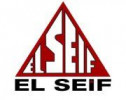Filter interviews by
R.V.R. PROJECTS Civil Site Engineer Interview Questions and Answers
R.V.R. PROJECTS Civil Site Engineer Interview Experiences
1 interview found
I applied via Naukri.com and was interviewed in Oct 2021. There were 3 interview rounds.
Interview Questionnaire
2 Questions
- Q1. Asked My previous projects details
- Q2. I'm telling all answers
Interview Preparation Tips
Top trending discussions






Interview questions from similar companies

Civil Site Engineer Interview Questions & Answers
The Louis Berger Groupposted on 25 Mar 2023
I applied via Newspaper Ad and was interviewed in Feb 2023. There were 2 interview rounds.
(1 Question)
- Q1. About Carriageways, Service Roads and patchwork i.e pot Holes, slippage cracks i.e alligator crack, horizontal or vertical crack, Undulating surface,rain cut, Metals beam crash barrier,Gaurd Rail or Mild s...
(3 Questions)
- Q1. Checking level of the layer
- Q2. Testing the field dry density of the bed like Sub Grade ,GSB,WMM, DBM or BC
- Q3. Checking the road width
Interview Preparation Tips
I m very panchtual for my job duty and going to site daily and prepare daily progress report and also prepare monthly progress report.

I appeared for an interview in Nov 2024, where I was asked the following questions.
- Q1. Road estimator re wall area report generation
- Q2. Rate analysis by sdb and sor

Civil Site Engineer Interview Questions & Answers
Dee Vee Projectsposted on 22 Dec 2022
I applied via Walk-in and was interviewed in Nov 2022. There were 2 interview rounds.

(2 Questions)
- Q1. What is mix design, grade of concerte, and its lab testing name
- Ans.
Mix design is the process of determining the proportions of cement, water, aggregates, and admixtures to produce concrete of desired strength and durability.
Grade of concrete refers to the strength of the concrete mix, which is determined by its compressive strength after 28 days of curing.
Lab testing for concrete includes tests for compressive strength, slump, air content, and density.
Mix design involves selecting the...
- Q2. Qistion arise from level sheet making ,wmm wbm dbm bc
- Ans.
The question is related to the process of making level sheets using WMM, WBM, DBM, and BC.
Level sheet making involves the use of different materials such as WMM, WBM, DBM, and BC.
WMM stands for Wet Mix Macadam and is used as a base layer for roads.
WBM stands for Water Bound Macadam and is used as a base layer for flexible pavements.
DBM stands for Dense Bituminous Macadam and is used as a binder course layer for roads.
B...
Interview Preparation Tips

Highway Engineer Interview Questions & Answers
Lea Associates South Asiaposted on 17 Jul 2017
I appeared for an interview before Jul 2016.
Interview Questionnaire
1 Question
- Q1. Temperature of Prime coat, Tack Coat, Penetration Grade, various tests on Bitumen, asphalt works, Rolling pattern, Rolling temperature as well as Asphalt Laying temperature, densities of various compacted ...
Interview Preparation Tips

Highway Engineer Interview Questions & Answers
Lea Associates South Asiaposted on 11 May 2018
I applied via Naukri.com and was interviewed before May 2017. There was 1 interview round.
Interview Questionnaire
1 Question
- Q1. What is the density of soil in embankment layer.
- Ans.
The density of soil in the embankment layer varies depending on the type of soil and compaction methods used.
The density of soil in the embankment layer is typically measured in terms of dry density or wet density.
Dry density refers to the mass of solid soil particles per unit volume of soil, while wet density includes the mass of water as well.
The density of soil in the embankment layer is influenced by factors such a...
Interview Preparation Tips
Skills: Technical Knowledge(ML, Technical Knowledge(ML
Duration: <1 week

I applied via Walk-in

Interview Preparation Tips

Billing Engineer Interview Questions & Answers
The Louis Berger Groupposted on 14 Oct 2023
I applied via Naukri.com and was interviewed in Apr 2023. There were 3 interview rounds.

(1 Question)
- Q1. About salary and benefits
(4 Questions)
- Q1. About my key activity and responsibility
- Q2. Process of variation
- Ans.
Process of variation involves documenting and analyzing changes in project scope, cost, or schedule.
Variations are changes to the original scope, cost, or schedule of a project
Variations must be documented and approved by the relevant parties
The impact of variations on project budget and timeline must be analyzed
Examples of variations include design changes, unforeseen site conditions, and client requests
- Q3. Details about TDS
- Q4. Details about NS items
Interview Preparation Tips
- Contact
- Running bill
- Escalations
- Variation
- Ns items

I applied via Walk-in and was interviewed in Jun 2022. There were 3 interview rounds.

(1 Question)
- Q1. Total experience Previous company salary
(1 Question)
- Q1. General technical questions
Interview Preparation Tips
- Steel Structures
- Finishing
- AutoCAD
- Bbs
- MS Office
- Ms excel

Billing Engineer Interview Questions & Answers
Dee Vee Projectsposted on 2 Oct 2024
I appeared for an interview in May 2024, where I was asked the following questions.
- Q1. Mode of measurement of plaster
- Ans.
Plaster measurement involves assessing area, thickness, and volume for accurate billing in construction projects.
Measurement is typically done in square meters (m²) for area.
Thickness of plaster is measured in millimeters (mm) or centimeters (cm).
Volume can be calculated by multiplying area by thickness.
For example, a wall of 100 m² with 12 mm thickness requires 1.2 m³ of plaster.
Consider wastage and application method...
- Q2. Autocad drawing related
Tell us how to improve this page.
R.V.R. PROJECTS Interviews By Designations
- R.V.R. PROJECTS Senior Civil Engineer Interview Questions
- R.V.R. PROJECTS Safety Executive Interview Questions
- R.V.R. PROJECTS HR Executive Interview Questions
- R.V.R. PROJECTS Electrical Engineer Interview Questions
- R.V.R. PROJECTS Mechanical Engineer Interview Questions
- R.V.R. PROJECTS Senior Executive Interview Questions
- R.V.R. PROJECTS Project Manager Interview Questions
- R.V.R. PROJECTS Engineer Interview Questions
- Show more
Interview Questions for Popular Designations
Overall Interview Experience Rating
based on 1 interview experience
Interview Questions from Similar Companies
R.V.R. PROJECTS Civil Site Engineer Reviews and Ratings
based on 18 reviews
Rating in categories
|
Senior Engineer
76
salaries
| ₹4.6 L/yr - ₹9.7 L/yr |
|
Safety Executive
48
salaries
| ₹2.2 L/yr - ₹4.3 L/yr |
|
Junior Engineer
44
salaries
| ₹1.8 L/yr - ₹4.4 L/yr |
|
Civil Engineer
44
salaries
| ₹2.4 L/yr - ₹6.5 L/yr |
|
Mechanical Engineer
40
salaries
| ₹3 L/yr - ₹6.6 L/yr |

Lea Associates South Asia

ABCI Infrastructures

VIKRAN Engineering & Exim

The Louis Berger Group
- Home >
- Interviews >
- R.V.R. PROJECTS Interview Questions













